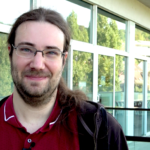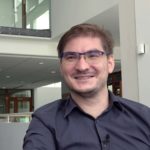

Thomas Lambert, a specialist in high-performance computing and distributed applications, has recently joined the COAST team, shared by Inria and Loria (CNRS, Inria, Université de Lorraine) as an Associate Professor at the Université de Lorraine.

Next Colloquium Loria will take place on Thursday, 28 October at 1:30 pm in the Amphitheater.
We are delighted to welcome Jaco van de Pol, Professor of Computer Science in Aarhus University, with a talk entitled “Explainable Verification of Safety and Security of Software Systems”.

Sébastien Duval joined the Caramba team, shared by Inria and Loria (CNRS, Inria, Université de Lorraine) as an Associate Professor at the Université de Lorraine last September.

A LORIA’s research team has been rewarded in a “bug bounty” program launched by Swiss Post for the scrutiny of its electronic voting protocol.
